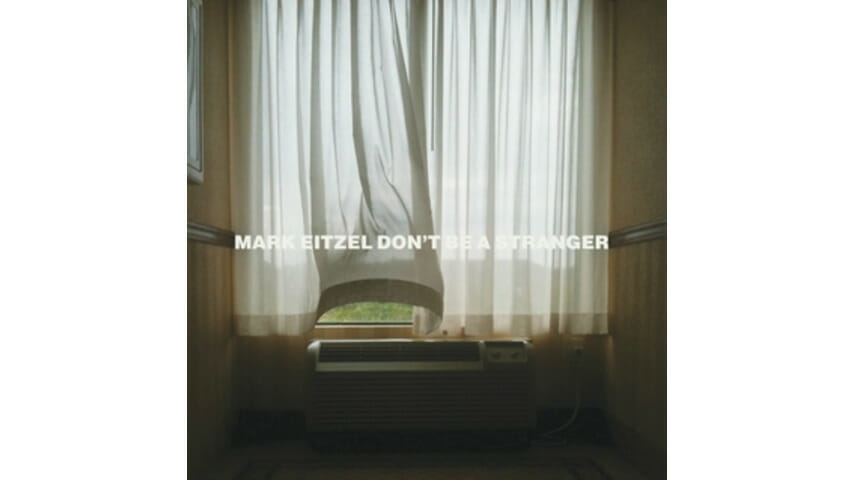
“Who needs the past? It just sticks to your shoe.” That’s Mark Eitzel singing on “The Bill Is Due,” from his solo album, Don’t Be a Stranger. He definitely has a lot of history caked on his soles: An Army brat who moved often during his childhood, Eitzel started making music in the early 1980s, then hit it kinda big in the early 1990s with American Music Club, where he developed a wry alt-crooner persona and trafficked in strange songs about Godzilla in heaven and Johnny Mathis’ feet.
When the Club disbanded in 1994, Eitzel went solo and settled into a career as a songwriter’s songwriter: someone championed by his peers but with only a cult following. That professional trajectory is common to many artists of Eitzel’s generation, which means the past he’s singing about on “The Bill Is Due” may be much more recent. The 2000s were a rough decade, with Eitzel bounced from one label to the next as his productivity and popularity decreased. As if to cap off that period in his life, he suffered a heart attack in May 2011.
On Don’t Be a Stranger, Eitzel doesn’t scrape all of that off his shoe, but tracks the mess around with him. While he doesn’t address those troubles specifically, he makes clear that his own past defines his worldview and the music he makes to express it. This is an album about the allure of transformation, of shedding your identity and venturing forth anew and unknown. But it’s also about the folly of such a metamorphosis. Who’s to say the new you won’t be worse than the old you?
On “Oh Mercy,” he petitions for entry into a party, promising to bring imported beer and a few dirty jokes. It’s a funny song, but the laughs catch in your throat, as they do on so many of Eitzel’s songs. The horrifying realization is that he either is the life of the party or has no life at all. “Who who who am I?” he asks as the song winds down and the guests begin to leave. “I’m just a gho-ho-host drifting by.”
The past decade has considerably altered Eitzel’s voice, which sounded robust and strong with American Music Club but now comes across as husky and hollowed out. If it’s physically weaker, it’s musically stronger—an evocative instrument that adds new textures and layers to his lyrics. He actually sounds like a gho-ho-host on these songs. A new sense of gravity informs his crooning, contrasting beautifully with the deceptive whimsy of songs like “Lament for Bobo the Clown” and “Costume Characters Face Dangers in the Workplace.”
As a result, Don’t Be a Stranger is out-of-sorts in the best way, as Eitzel forever plays the outsider looking in. On “I Love You But You’re Dead” he revisits the old punk clubs of his youth, where both the amps and his hearing have blown. “The speaker stack is covered in a thick pile of dust,” he observes. “Turn it up, turn it up, turn it up, gimme something I can use.” It’s a harrowing glimpse of rock’s broken promises, but Don’t Be a Stranger never sounds bleak. Eitzel isn’t bitter about his lot. In fact, he knows a shitty yesterday makes for better songs today.